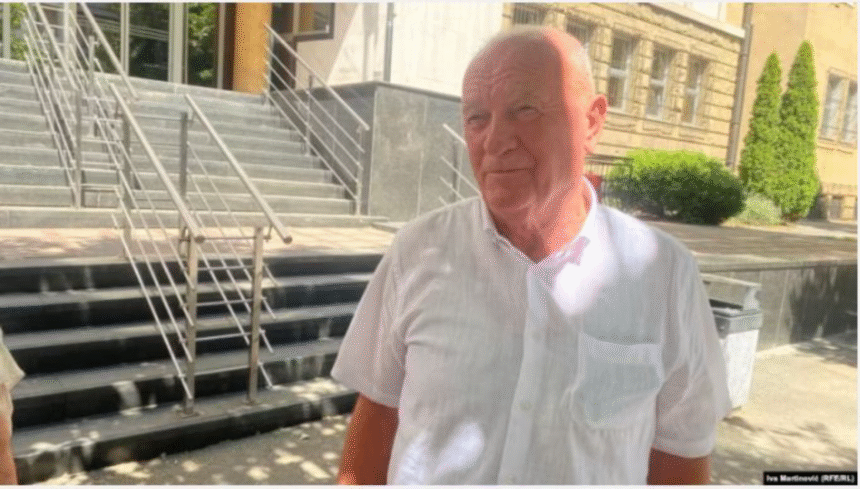The High Court in Belgrade has acquitted Milenko Živanović, former commander of the Drina Corps of the Army of Republika Srpska (VRS), of war crimes against civilians in Srebrenica in July 1995.
In its first-instance verdict delivered on Tuesday, the court dismissed charges that Živanović ordered the forcible displacement of the Bosniak population from the UN-protected zone of Srebrenica. The prosecution has announced an appeal.
The presiding judge stated that while Živanović assigned tasks to units under his command, none of them were linked to the expulsion of civilians, but instead to military actions against enemy forces.
The prosecution had sought five years in prison, the legal minimum, accusing Živanović of issuing a March 1995 order stating that “daily planned and thought-out combat actions must create conditions of total insecurity, unbearable circumstances, and hopelessness for life continuation for residents in Srebrenica and Žepa.”
He was also accused of organizing buses for the evacuation of Srebrenica on July 12, 1995, including requesting fuel for 50 buses from the VRS General Staff.
During the offensive on Srebrenica, a UN-protected zone, over 8,000 Bosniak men and boys were systematically executed by Republika Srpska forces — an act internationally recognized as genocide.
Throughout the trial, Živanović remained free. He was indicted in December 2021 by Serbia’s War Crimes Prosecutor, just two weeks after being charged in Bosnia and Herzegovina for crimes against humanity in the same region.
The Bosnian indictment includes:
Blocking humanitarian aid;
Shelling civilians and civilian infrastructure;
Creating unbearable conditions to force displacement;
Organizing deportations and transport of detained men and boys who were later executed.
While international and regional courts have ruled these crimes as genocide, Serbian prosecutors only charged Živanović with war crimes, arguing the difficulty of proving genocidal intent.
Serbia still refuses to recognize the 1995 Srebrenica genocide, and Živanović is among many who have fled Bosnia and found refuge in Serbia.
Meanwhile, another case related to Srebrenica is ongoing at the High Court in Belgrade: the trial of eight members of the RS Special Police Brigade, charged with killing 1,313 Bosniak civilians in Kravica. This trial, which began in late 2016, is still in the evidence administration phase after more than eight years.
Despite prior rulings by courts in Bosnia and The Hague classifying these crimes as genocide or crimes against humanity, Serbian courts continue to treat them merely as war crimes against civilians.







